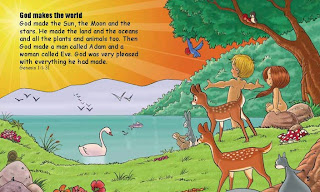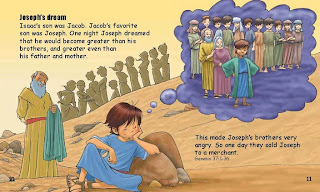 It is time for a FIRST Wild Card Tour book review! If you wish to join the FIRST blog alliance, just click the button. We are a group of reviewers who tour Christian books. A Wild Card post includes a brief bio of the author and a full chapter from each book toured. The reason it is called a FIRST Wild Card Tour is that you never know if the book will be fiction, non~fiction, for young, or for old…or for somewhere in between! Enjoy your free peek into the book!
It is time for a FIRST Wild Card Tour book review! If you wish to join the FIRST blog alliance, just click the button. We are a group of reviewers who tour Christian books. A Wild Card post includes a brief bio of the author and a full chapter from each book toured. The reason it is called a FIRST Wild Card Tour is that you never know if the book will be fiction, non~fiction, for young, or for old…or for somewhere in between! Enjoy your free peek into the book!
You never know when I might play a wild card on you!
Today’s Wild Card author is:
and the book:
Lanphier Press (September 1, 2012)
***Special thanks to Susan Otis, Creative Resources, Inc. for sending me a review copy.***
Chris Evans, a successful high-tech entrepreneur and philanthropist, is the recipient of many awards of distinction. The co-founder of E-Mail software maker DaVinci Systems, he went on to found Accipiter, a leader in Web Site advertising management software.. He currently advises other entrepreneurs privately and as part of the Blackstone Entrepreneur Network. He has served as a board member on the Trinity Forum and sits on the boards of several non-profits. He and his wife Cathy have two children and live in Raleigh, North Carolina.
Visit the author’s twitter.
Visit the author’s website.
SHORT BOOK DESCRIPTION:
 A successful high-tech entrepreneur says Christians can demonstrate faith in practical and sustainable ways in the workplace when they evidence the fruit of the Spirit in their lives. When practiced correctly, Chris Evans says this will result in highly valued habits and characteristics and can grow the leadership and relational skills that companies covet in their employees. Christians hesitant to share their faith at work will find biblical principles, stories of workplace situations where the fruit of the Spirit is having a dynamic impact and practical suggestions for putting the key principles into action.
A successful high-tech entrepreneur says Christians can demonstrate faith in practical and sustainable ways in the workplace when they evidence the fruit of the Spirit in their lives. When practiced correctly, Chris Evans says this will result in highly valued habits and characteristics and can grow the leadership and relational skills that companies covet in their employees. Christians hesitant to share their faith at work will find biblical principles, stories of workplace situations where the fruit of the Spirit is having a dynamic impact and practical suggestions for putting the key principles into action.
Product Details:
List Price: $14.99
Paperback: 160 pages
Publisher: Lanphier Press (September 1, 2012)
Language: English
ISBN-10: 0985629606
ISBN-13: 978-0985629601
ISLAND BREEZES
This book teaches the importance of bearing fruit and of trust in the workplace.
You will find practical suggestions regarding the showing of the various fruits of the spirit in your work place. It’s about making different choices than you may have made in the past.
Make the fruit of the spirit part of your daily work life. Both you and others will be blessed while working in a “fruit basket.”
AND NOW…THE FIRST CHAPTER:
But the fruit of the Spirit is love, joy, peace, patience,
kindness, goodness, faithfulness, gentleness, and self- control.
Gal 5:22-23
What does it mean to be a Christian in the workplace? Since I became a Christian over 20 years ago, I have studied, explored, and sought answers to this question. It seems clear that Christians should be different from their co-workers somehow, but how? Should we keep our faith strictly to ourselves as a private matter? Should we decorate our workspace with Christian messages and symbols to advertise our faith? Some would argue that it means sharing our faith with our co-workers, but that still leaves the question of how our faith makes a difference when doing the things we were hired to do. A common fear is that truly being a Christian in the workplace would create tension with your employer and co-workers and might hurt your career.
I believe the answer comes from imitating Christ by developing and exercising the fruit of the Spirit in the workplace.
This book is for everyone…
• …who would like to do more Monday through Friday of
what they learn on Sunday.
• …who doesn’t want to make a trade-off between growing
in their careers and growing in their Christian walk.
• … who is frustrated with the realization that they are a part-time Christian whose spiritual life seems to end at the entrance to their workplace every morning.
Your faith does have an important place in your work. Far from being at odds with your employer; when exercised right your faith can grow the leadership and relational skills most companies covet in their employees. I’ll go further to say that it’s not just possible to exercise your faith in the workplace, it’s critical to your growth as a follower of Jesus Christ. Few other areas in your life offer the kind of environment that will challenge your character, faith, and relationships with others or that can show you where you need to grow. If you leave your faith at the door when you come to work, you’re stunting your spiritual growth too.
The things I’m going to share in this book come from many years in business. I have started three successful businesses, served on the board of a public company as well as several non-profits, advised scores of CEOs on business strategy, and been a guest lecturer at many business schools in the US and Europe. For much of that time, I’ve been trying to grasp what role my faith in Christ has in my work—discovering how the things God is teaching me in my walk can be a blessing to those I’m working with.
I’m writing about bringing the fruit of the Spirit to work for two reasons. The first is that these fruit (love, joy, peace, patience, kindness, goodness, faithfulness, gentleness, and self-control) represent practical guidelines, a tool kit for addressing a variety of situations that come up in work. By understanding what they truly are and their use in the workplace, you have a whole group of resources to use. The second reason, and arguably more important, is that these things are the fruit of the Spirit. As we learn more about fruit, you’ll see that as believers in Christ, we can expect the Holy Spirit to give us supernatural quantities of this fruit as we grow in our faith. Christians should not just be naturally good at exercising love, joy, peace and the rest; they should be supernaturally good at it.
THIS IS A BOOK ABOUT WORKPLACE CHRISTIANITY, NOT WORKPLACE EVANGELISM
There are several great ministries and books that address how to share the gospel with your co-workers. I’m more concerned with developing a sustainable and constantly improving demonstration of your faith where you work. While I’m not discussing strategies for sharing the Gospel, I do believe the effort to demonstrate effective Christianity can be an important ingredient to others coming to faith in Christ.
In my own journey, I heard and understood the Gospel long before I accepted it. I recognized that to truly be a Christian was to embrace a set of values that would have to be applied everywhere— at work, home, in marriage, and with friends. I wasn’t sure it was realistic to truly live like a Christian. It wasn’t until I encountered believers who I respected that were actually doing it that I truly felt I could bet my life on the Gospel. I saw in them that not only was it possible to live out the Christian faith, but that I could turn that practice into strengths that would actually make me a better businessman. The practical day-to-day walk of a Christian is its own ministry—and one we are all called to.
THIS IS A BOOK FOR ANYONE IN THE WORKPLACE, NOT JUST CEOS AND MANAGERS
A friend of mine who works for state government recently lamented that every book about business and Christianity she finds seems to be directed towards the CEO and how to lead a company. “It’s as if the only part of Christianity ordinary workers have to employ is patience towards their bosses,” she said. The things we’re going to cover in this book work for any level of employee. Whether it’s how you relate to your manager or how you relate to your board of directors, I’ve tried to write with a variety of roles in mind. That said, I realize that many of my stories are those of a tech entrepreneur. They may be different from your own stories, but I’ve talked with enough people on this subject that I’m confident you can apply the lessons in this book to your own work life.
THIS IS NOT A BOOK ABOUT USING YOUR FAITH TO PROSPER FINANCIALLY
While it’s quite possible that practicing workplace Christianity will grow your relational and management skills and could result in greater success at work; what it should definitely do is stretch you in your faith and make you more Christ-like. Using the things written here with the objective of making more money would be like enrolling in an MBA program with the goal of adding books to your library—it could happen, but you’d be missing the point.
YOUR CHRISTIAN DEVELOPMENT IS AN IMPORTANT PART OF YOUR SPIRITUAL DEVELOPMENT
If you are a Christian in the workplace, there are some assumptions I think it’s fair to make about you:
• You plan to remain a Christian throughout your career1
• You would like to be a “better Christian” than you are now
• You intend to spend significant time and energy on
becoming a “better Christian”
If you expect to become a better Christian over time, and you plan to invest time and energy pursuing this goal; you should also expect that the fruit of the Spirit will grow in you. As long as you’re committed to your faith, the skills that come from the fruit of the Spirit will factor into your career plan.
Not only should these skills be a part of your plan; they represent a competitive advantage. While your co-workers spend their spare time working on their golf-swing, gardening, or “Texas Hold-em” skills, you are devoting time to spiritual growth that directly contributes to your value at work.
I believe this is the key to avoiding a struggle between time spent on career and time spent on faith. When you allow the energy spent on spiritual growth to bless your career, there is no longer a competition between the two.
LET’S GET STARTED
We’ll start by learning about what “fruit” means generally and then cover some important things about workplace Christianity, including trust, the word that defines the quality of most business relationships and decisions. We’ll then go one by one through each word describing the fruit of the Spirit and discover its value in our workplace. I hope to show you that bringing the fruit of the Spirit to work is not only natural, but consistent with the advice of some of the most highly-regarded business leaders and authors. As you let this fruit emerge in your own life, you will see how your walk with God has never been closer, and your work never more fulfilling.
1 This is, of course, a tongue-in-cheek assumption. If you don’t plan to remain a
Christian, you’ll need more help than this book can offer you.
The FRUIT
of the SPIRIT
I’ve always loved tool sets. Whether it was my first tool box, a chemistry set, or Batman’s utility belt, they offered a set of elements that, when used individually or combined, could solve a wide range of problems. When I was a boy, I found a branch that had good potential for a walking stick. I whittled and carved it until it was smooth and clean and then I chiseled small compartments into the stick to hold “tools” I might need for my walk—fishing line and hook, a Band-Aid, a dime to phone home. When I took walks in the woods with my “super stick ”, I felt well prepared for anything I might encounter.
When I read the Scriptures about the fruit of the Spirit, I connect with it because it feels like a “Christian utility belt” of tools for any situation. Particularly, it is a powerful combination for solving problems in the workplace.
In this chapter, I’m going to explain the Scriptural roots of the fruit of the Spirit, what it means for them to be called “fruit”, what their role in the workplace is, and how they should factor into your professional growth and career strategy.
The fruit of the Spirit appears in Scripture in the book of Galatians, chapter five. In this chapter, Paul pleads with the Galatians not to be tricked into giving up their freedom in Christ by following the teaching of some legalistic mischief makers. He then goes on to talk about how, if we are free, we can either abuse or thrive on that freedom. We abuse our freedom by following our sinful nature. He says it’s easy to tell if someone is following their sinful nature. It appears through sexual immorality, impurity, hatred, rage, envy, selfish ambition, and the like.
Paul then goes on to say that it’s also obvious if someone is following the Spirit:
But the fruit of the Spirit is love, joy, peace, patience, kindness, goodness, faithfulness, gentleness and self- control.
Gal 5:22-23
The point of Paul’s sentence is that the fruit of the Spirit are the signs that you are filled with the Spirit. They should be the unmistakable marks of a Christian life. While Jesus said “They will know you are Christians by your love,” ( John 13:35) Paul effectively says, “They will know you are Christians by your love, joy, peace, patience, kindness, goodness, faithfulness, gentleness and self-control.” Not only are these things signs of our walking in the Spirit, they are the effect of our walking in the Spirit. We don’t have to produce these qualities under our own power; the Spirit grows them in us.
As much as these fruit are the symptoms of a faithful Christian walk, it’s rare to see them in the workplace. If I surveyed your office and asked them to name who (if anyone) exemplifies love,
joy, peace, patience, and the others; would they be more likely to name a Christian? Hopefully some readers will say so, but I’ve heard many people express otherwise – that there’s no difference between Christians and non-believers at work when it comes to these traits.
The reason for this is easy to imagine. Work can be seen as a jungle where relationships are important but can also be fouled by awkward moments. It’s almost never a good idea to tell a co- worker “I love you”. Likewise, unexplained outbursts of joy could get you labeled a weirdo and strain relationships at the office. Kindness can be seen as kissing up, patience as weakness, and peace as passivity. While it may seem that trying to bring the fruit of the Spirit into the office is professional suicide, the truth is that, when properly understood, these fruit are used and advocated by some of the most successful leaders and business people of our time. The difference is in understanding what the fruit really are and how they work in a business context.
Bringing love to work doesn’t mean you tell everyone “I love you, man,” or anything cheesy, gushy, and trite. No, it’s something more powerful and radical. Love is the counter-instinctive decision to desire the best for another person even if it comes at our personal cost. Love means you work to structure win-win deals with customers and co-workers, even when they would have agreed to a win-lose deal. It means you notice when someone is struggling with a task and take time to help and encourage them. It means remembering that when a co-worker loses someone close to them, that time is standing still for them even though life has moved along for you and everyone else. Before we talk about love or any other fruit, let’s consider what it means for us to have fruit in the first place.
WHAT IS FRUIT?
Fruit is something a tree naturally produces. It doesn’t have to
work to produce fruit. In fact, even if a tree tried hard not to, it would still produce fruit. In the same way, fruit should be a natural product of your walk with Christ. Given that Paul’s passage about fruit occurs in the context of pleading with the Galatians not to be slaves to the law, it would be a contradiction for him to load “bearing fruit” on your shoulders as one more chore you’ve taken on as a Christian (or more likely, one more thing you should feel guilty about not doing more of ). If you make Christ the center of your life, fruit happens.
Some of you may be asking “But what if it doesn’t happen?” There are several explanations. It may be simply a “dry period” that we all experience some time in our Christian lives or there may be some big matter you and God are wrestling with. There is another, uncomfortable answer through: that you may not truly be in Christ. Consider this parable:
“A farmer went out to sow his seed. As he was scattering the seed, some fell along the path, and the birds came and ate it up. Some fell on rocky places, where it did not have much soil. It sprang up quickly, because the soil was shallow. But when the sun came up, the plants were scorched, and they withered because they had no root. Other seed fell among thorns, which grew up and choked the plants. Still other seed fell on good soil, where it produced a crop—a hundred, sixty or thirty times what was sown.”
Matthew 13:3-8
Soon after, he explains the parable to his disciples:
“When anyone hears the message about the kingdom and does not understand it, the evil one comes and snatches away what was sown in his heart. This is the seed sown
along the path. The one who received the seed that fell on rocky places is the man who hears the word and at once receives it with joy. But since he has no root, he lasts only a short time. When trouble or persecution comes because of the word, he quickly falls away. The one who received the seed that fell among the thorns is the man who hears the word, but the worries of this life and the deceitfulness of wealth choke it, making it unfruitful. But the one who received the seed that fell on good soil is the man who hears the word and understands it. He produces a crop,
yielding a hundred, sixty or thirty times what was sown.”
Matthew 13:19-23
Jesus gives several examples here of people who heard the Gospel, but did not bear fruit. Some just didn’t understand it; some took it, but lacked the depth of commitment to persevere. Some let it get pushed to the side by other priorities. If you are not bearing fruit, I suggest you consider the depth of your commitment to Christ, or his place in your priorities. There is still time to be transplanted to good soil, but you will have to make some important decisions about your life first. This would be a good thing to explore with your pastor, or a mature Christian who you do see bearing fruit. At the risk of hurting the budding relationship between us, let me be clear: It is not okay to be a Christian and not bear fruit. In John 15:5-6, Jesus says:
“I am the vine; you are the branches. If a man remains in me and I in him, he will bear much fruit; apart from me you can do nothing. If anyone does not remain in me, he is like a branch that is thrown away and withers; such branches are picked up, thrown into the fire and burned.” John 15:5-6
Nobody wants that for you. If you feel this passage describes you, take this opportunity to look into why you haven’t been bearing fruit now!
REAL AND IMITATION FRUIT
There’s something I need to be clear about: Fruit is not something you do to become a Christian, it is something you do because you are a Christian! Some people may get the impression that by trying to exercise the fruit of the Spirit on their own, that they can somehow earn God’s favor or forgiveness. Trying to become a Christian by exercising the fruit is like trying to become a fish by swimming. The fish swims because it’s a fish, the swimming didn’t make it a fish. The more you look at the fruit as some sort of to-do list that you can use to earn God’s favor, the more you are moving in the wrong direction. It’s only by accepting God’s grace that we have access to His Spirit and the real fruit can be produced.
THE MASTER GARDENER
Jesus used plants and gardening as illustrations many times in his ministry. That is only fitting as every plant that ever existed was created through him ( John 1:3). If we are the ones that bear the fruit, he is the master gardener.
WE WERE CHOSEN TO BEAR FRUIT
The first thing we should know is that Jesus chose us to bear fruit.
“You did not choose me, but I chose you and appointed you to go and bear fruit—fruit that will last.”
John 15:16
When I go to a nursery to pick out plants for my garden, I look
for signs that they will be fruitful. I avoid the withered ones and take the ones that are already budding when possible. Our master gardener has done the same thing, and he left the nursery with us in his wagon! It is not a question of whether you are capable of bearing fruit—if you are his, you are quite capable.
A CHANGE OF FRUIT
Sometimes a grower will come across a crab-apple tree that is healthy and strong, but produces useless fruit. He then can cut some branches off a good apple tree and graft those branches to the crab apple tree by cutting off some of its branches and joining the cut crab apple limbs with the good apple branches. The result is a harvest of good apples.
This is a good illustration of our own nature. At first we were wild trees producing little or inferior fruit. When we put ourselves under Christ, the master gardener, he spliced new branches onto us so that now we produce good fruit. It is now a part of our nature.
PRUNING
Even a well-cultivated tree will only produce sparing fruit if left on its own. The way a gardener coaxes the most fruit out of a plant is by pruning. Pruning is the process of cutting back part of the plant, sometimes severely, to allow the plant to focus its nutrients in fewer places. Our master gardener does the same thing. Jesus says:
“He cuts off every branch in me that bears no fruit, while every branch that does bear fruit he prunes so that it will be even more fruitful.”
John 15:2
As you bear fruit in your life, be aware that the areas where you are bearing fruit are subject to pruning. This may mean that a job
you start to do well is replaced with another job that will challenge you to produce more fruit. While this is uncomfortable, God knows what he’s doing. You should see this pruning as encouragement that God is caring for you and is taking an active role in your growth. Jesus says, “Those whom I love, I rebuke and discipline” (Revelation 3:19). Some of that discipline will come as pruning.
LIVE LONG AND PROSPER
The first Psalm refers to fruit when it says:
Blessed is the man
who does not walk in the counsel of the wicked or stand in the way of sinners
or sit in the seat of mockers
But his delight is in the law of the LORD, and on his law he meditates day and night. He is like a tree planted by streams of water, which yields its fruit in season
and whose leaf does not wither. Whatever he does prospers. Psalm 1:1-3
The kind of person who yields fruit is the kind of person about whom people say “whatever he does prospers”. As you read about the power of the fruit of the Spirit in the workplace, I think you’ll see how a fruitful Christian can be effective in nearly any calling. The other thing the Psalm says about the fruitful man is that their “leaf does not wither”. There are few things more beautiful than a large, healthy hardwood tree with its bright leaves and stretching canopies. That is the picture of the person who yields the fruit of the Spirit everywhere they go. On the other hand, it’s sad to look at a tree that is withering and drying up. The Psalms also say:
The righteous will flourish like a palm tree, they will grow like a cedar of Lebanon; planted in the house of the LORD,
they will flourish in the courts of our God. They will still bear fruit in old age,
they will stay fresh and green,
Psalm 92:12-14
We’ve all seen people who seem to continue to have purpose and energy even well into retirement. The Word tells us we can be counted among those who continue to bear fruit in old age.
ONE FRUIT, SEVER AL FACETS
Notice that Paul names the fruit (singular) of the Spirit in Gal.
5:22, not the fruits (plural). There are good reasons for this. First: love, joy, peace, patience, kindness, goodness, faithfulness, and self-control are all interconnected. To yield one well is to yield all well. For instance, if I truly love someone, it is natural to be patient with them. For another example, if I hold joy in my heart, peace will be there too. While we will be studying each of these words one at a time, they really have to be practiced as a group. The second reason is that the fruit of the Spirit describes the character of Christ. Read through the Gospels and you will see the best example of a man with love, joy, peace, patience, kindness, goodness, faithfulness, gentleness and self-control. When we yield the fruit of the Spirit, we aren’t just becoming better Christians; we’re actually becoming more like Christ. As you learn how to bring the fruit of the Spirit to work, you will actually be bringing Christ to work – not just one facet of him, but his whole character!
While Paul had good reasons to use the singular of “fruit” in his letter, it does make it a linguistic challenge to write about them.
You may have already noticed that I will from time to time talk about love, joy, peace, etc. as if they were the fruits of the Spirit, while a more accurate statement is that they are facets of the fruit of the Spirit. That kind of construction, however, makes it really awkward to write a book. Therefore, I humbly ask your indulgence, for both our sakes, to allow me to call love, joy, peace, etc. “fruit”, as long as we both understand that they are really descriptors of the single fruit of Christ-likeness.
Before we talk specifically about the fruit of the Spirit, we need to study the context of the workplace. There is a word that determines the quality of every relationship in the workplace and boosts the chance of acceptance of every proposal: Trust.
KEY IDEAS IN THIS CHAPTER
• The fruit of the Spirit are the signs that you are following the Spirit. Not only are these the signs of walking with the Spirit, they are the effect of our walking with the Spirit.
• We don’t have to produce these qualities under our own power; the Spirit grows them in us. They are a natural product of your walk with Christ.
• Jesus chose us to bear fruit.
• The fruit of the Spirit are all interconnected. To yield one well is to yield all well. When we yield the fruit of the Spirit, we are becoming more
like Christ.
PUTTING IT TO WORK
Ask a close friend or a spouse to look at the fruit of the Spirit—love, joy, peace, patience, k indness, goodness, faithfulness, gentleness, and self-control— and tell you which ones the most see reflected in you.














copy.jpg)







